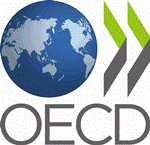Switzerland has clearly missed its own development assistance target
Published on Wed, 2018-04-11 14:43
Figures released on 10 April by the Federal Council show that Switzerland has clearly missed its own development assistance target. The country is thus moving further away from the international goal of allocating 0.7% of gross national income to development funding. While this allocation remained just about stable across OECD countries, in Switzerland it dropped from 0.53% to 0.46%. A hefty 14% contraction. In 2011, the Swiss Parliament set the target of raising Official Development Assistance (ODA) as a percentage of Gross National Income (GNI) to 0.5%. This goal was attained in 2015. It was thanks, on the one hand, to an expanding budget for development assistance programmes, but mainly the consequence of growing expenditure on refugees in Switzerland; under international standards such expenditure can also be reported as development spending. Last September, a clear majority in the National Council confirmed their willingness to maintain the target of 0.5%. The current figures now show, however, that Switzerland has fallen back to the 2013 level. In 2017, ODA spending fell to 0.46% of GNI. The ODA contraction can indeed be attributed mainly to the diminishing cost of caring for refugees in Switzerland. Yet the share of genuine development assistance has also contracted. In 2016, ODA without spending on asylum seekers still amounted to 0.43%. In 2017, this share was down to 0.41%. This meant that in 2017 there was about CHF 120 million less available for the long-term development work of the Swiss Agency for Development and Cooperation (SDC) than in 2016. That is an 8% contraction. The reason for this downturn lies in the programmes of spending cuts, which in recent years have disproportionately affected development assistance budgets. Although development assistance accounts for 4% of the federal budget, it bore 25% of the savings cuts that were implemented under the 2017-2019 Stabilization Programme. Together with the 2018 Budget, the Federal Council presented another cost-cutting programme in which, yet again, 20% of the measures are at the expense of development assistance and hence of the world's poorest. For Alliance Sud, the Think-and-do-tank of Swiss development organizations, this is all the more scandalous considering that the 2017 federal budget has simultaneously posted a record surplus of almost CHF 5 billion. In 2016, spending on asylum seekers still amounted to 19.4% of the expenditure reported as development spending. Given the falling numbers of asylum applications in Switzerland, that share declined to 9.2% in 2017. Compared with other countries, this placed Switzerland just below the average for the countries represented in the OECD Development Assistance Committee (DAC) (9.7%). Alliance Sud is sharply critical of the OECD-DAC guidelines whereby expenditure on housing and caring for refugees for the first year can be counted as development funding. Eva Schmassmann: "This is fraudulent labelling, as these funds entail no benefits for developing countries. They merely help to make development spending appear higher than it is in reality." In recent years therefore, Switzerland has been the biggest recipient of its own development funds (see also Charging asylum costs to development budgets). For further information contact Eva Schmassmann, Development Policy Desk, Alliance Sud, phone: +41 76 458 89 52 Source: Alliance Sud. |
SUSCRIBE TO OUR NEWSLETTER



